In which, the “5 realities” include: real management; real teaching; real learning; real exams, real results and real talent. The “3 pillars” include: standardization, modernization, quality.
On the morning of September 19, the Ministry of Education and Training held a conference to review the work of educational quality assessment and recognition of national standards for preschools, general education institutions, and continuing education institutions, for the 2019-2025 period.
Changing awareness, forming a culture of quality
Permanent Deputy Minister Pham Ngoc Thuong stated that in the 2019-2025 period, the work of assessing the quality of education and recognizing national standard schools from preschool to general education and continuing education achieved many important results, contributing to improving the quality and ensuring equity in education. Through quality assessment, management levels and schools have approached a quality-oriented, effective and continuously improving management model.
Agreeing on some key points to do this work well in the coming time, the Deputy Minister first emphasized changing awareness.
Accordingly, it is necessary to have a correct, deep and comprehensive understanding of the meaning and role of quality assessment and building schools that meet national standards.
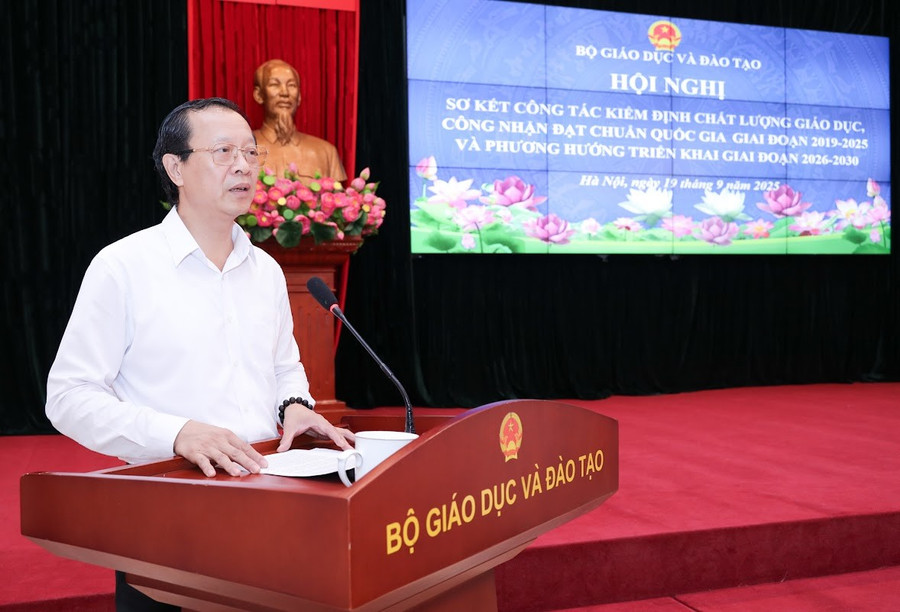
The Deputy Minister mentioned Resolution 29-NQ/TW emphasizing the requirements for standardization, modernization, socialization, and internationalization; Resolution 71-NQ/TW on breakthroughs in education and training development also repeatedly emphasized “modernization”, “standardization” and “quality”. From there, three key, consistent issues were affirmed: modernity, quality and standardization. In education, especially in relation to human resource training, this is even more vital.
From that awareness, in the activities of quality assessment and building schools that meet national standards, the Deputy Minister said that we must aim for "five realities": real management; real teaching; real learning; real exams, real results and real talent.
The second thing in awareness is to form a quality culture, a standard culture, to become a regular action of each subject. The work of quality assessment or building a school that meets national standards must start from the awareness and daily work of each individual in the organization - from students, staff, teachers to managers. At that time, this becomes a regular thing, not just when there is an inspection team to hastily gather documents and evidence. It is from this regular maintenance that later when reviewing standards and criteria, we will no longer be under heavy pressure of documents.
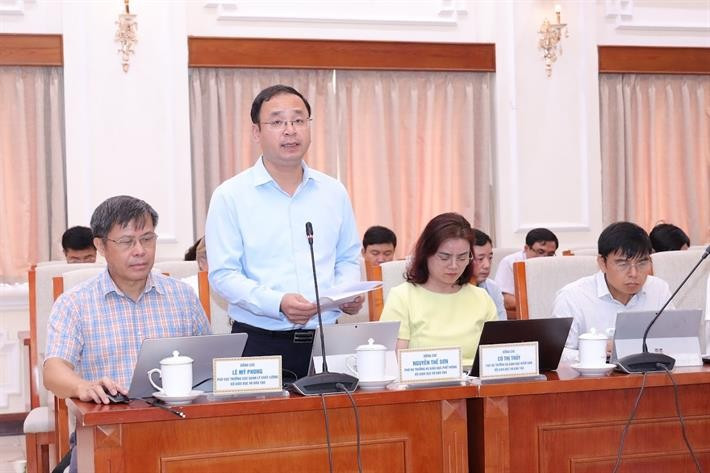
Implementation must be drastic and effective.
The next issue emphasized by the Deputy Minister is the role of the leader. When principals, department directors, industry leaders, and provincial leaders pay attention to the quality of education, especially the work of building schools that meet national standards, the results will be completely different. The leader is the one who leads, initiates, directs, and even directly organizes implementation, inspection, and supervision. That involvement creates impact and spreads very quickly.
Along with that, the participation of all levels and sectors plays a very important role. The principal plays a big role, but cannot rely only on individual efforts but needs to mobilize the responsibility of the commune, district, province and related levels.
In the work of institutional development, the Deputy Minister said that the Ministry of Education and Training will absorb maximum contributions in the spirit of high action; reduce administrative procedures, reduce formalities; focus on core and mandatory indicators and targets... The work of accreditation and building national standard schools must be substantive, encouraging the initiative and creativity of the facilities. The development of principles, criteria and plans must closely follow the issued resolutions and plans.
In addition to changing thinking, shifting from management to administration, from pre-control to post-control, from assigning targets to assigning output results..., the Deputy Minister also emphasized that the implementation must be drastic and effective. "The way of doing things must be different, thinking and action must be stronger," the Deputy Minister emphasized.
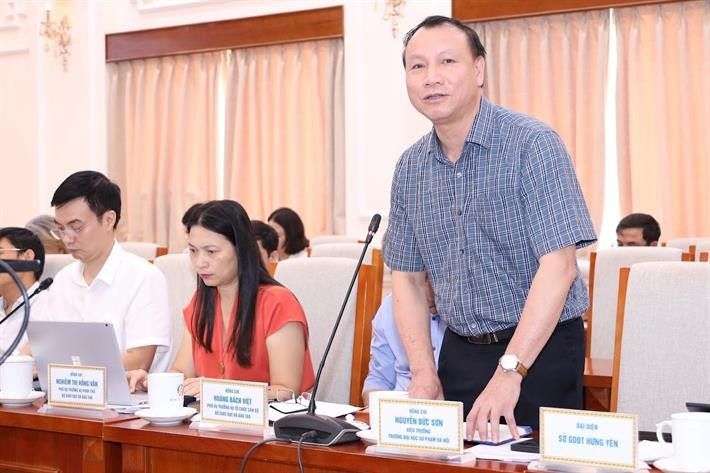
Another important note that the Deputy Minister also emphasized is ensuring fairness. In building national standard schools, the Ministry of Education and Training will continue to review standards and criteria to better suit reality. The spirit is not to lower standards but needs specific mechanisms and appropriate solutions to shorten the gap.
According to the Deputy Minister, the most important thing is to raise awareness in the new spirit - associated with the "5 realities" and "3 pillars": standardization, modernization, quality; building a quality culture on the basis of perseverance, regularity, considering it a daily task. The Ministry of Education and Training will continue to issue a common institutional framework; on that basis, localities must promote proactiveness, flexibility and creativity.
Regarding solutions for effective implementation, the Deputy Minister mentioned building an industry-wide database on quality assessment and national standard schools; deploying shared software; promoting digital transformation, applying artificial intelligence, and online assessment methods to overcome human resource limitations, especially in localities with a large number of schools.
Source: https://giaoducthoidai.vn/5-that-va-3-tru-cot-trong-kiem-dinh-chat-luong-giao-duc-post749089.html



![[Photo] Da Nang: Hundreds of people join hands to clean up a vital tourist route after storm No. 13](https://vphoto.vietnam.vn/thumb/1200x675/vietnam/resource/IMAGE/2025/11/07/1762491638903_image-3-1353-jpg.webp)







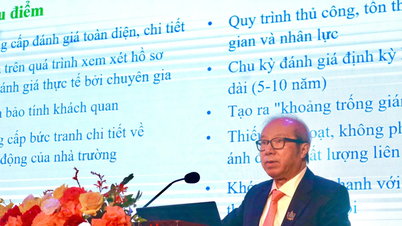

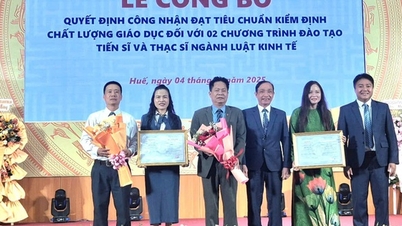

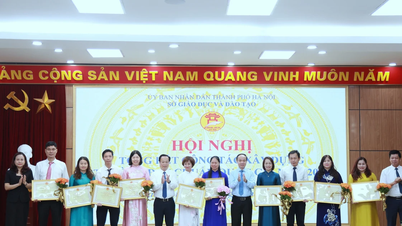
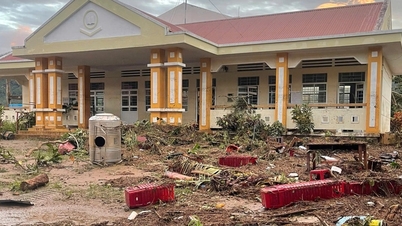











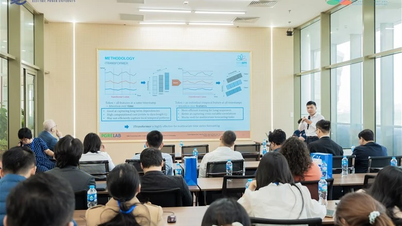
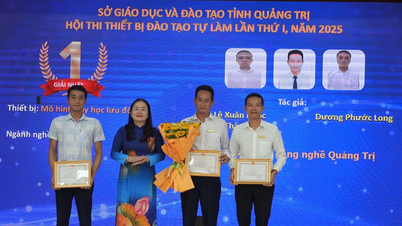
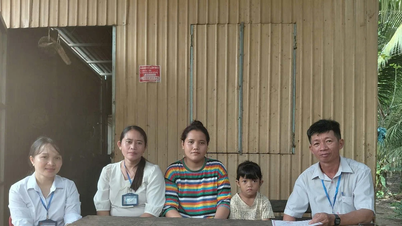
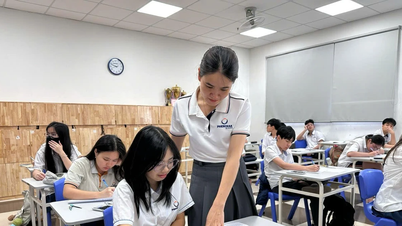

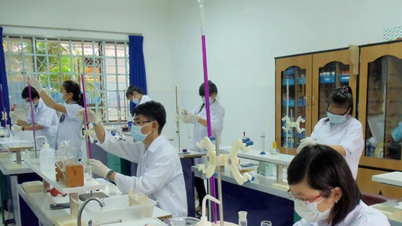








































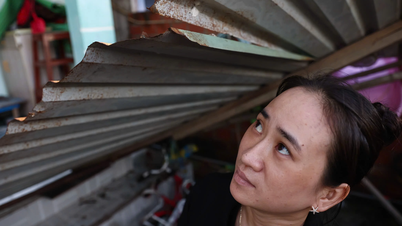





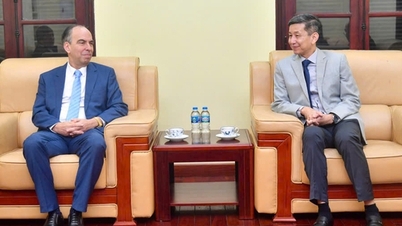
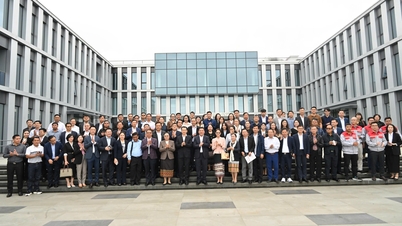



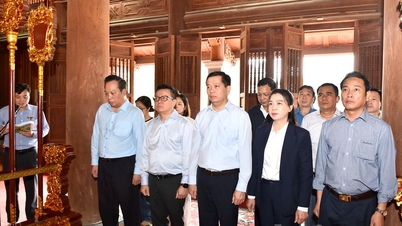



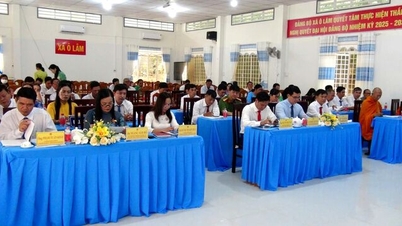

















Comment (0)